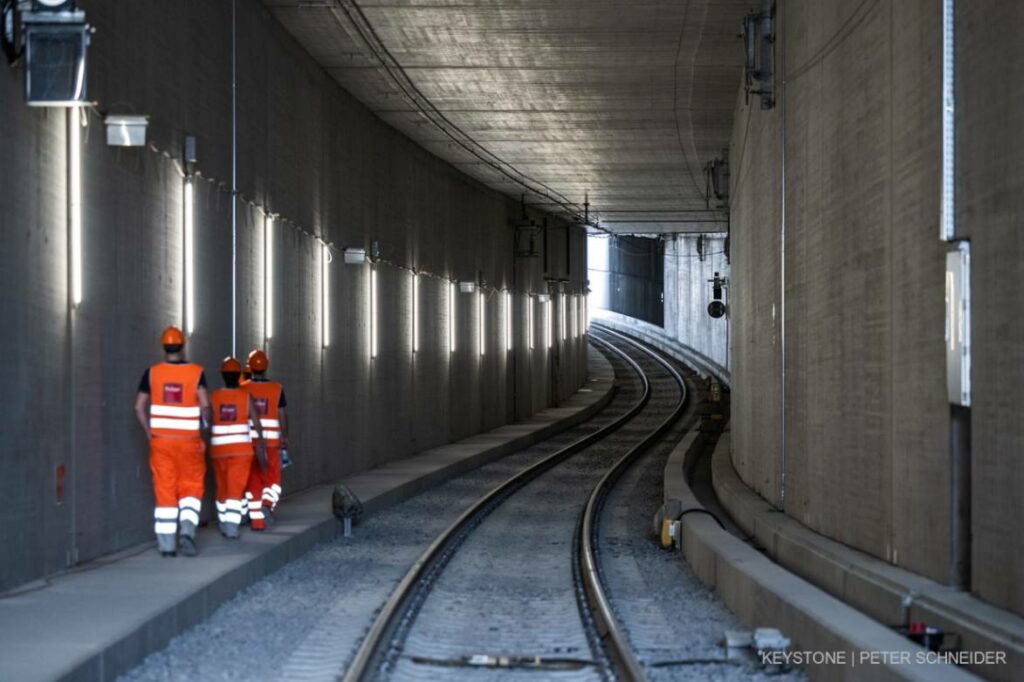الأثنين، فبراير 5 5 2024
Tunnel Collapse Spurs Immediate Action. Safety Measures and Repairs Underway. Riddes-La Tzoumaz Route Sees Extensive Work Ahead.

The tunnel on the road between Riddes and La Tzoumaz in the Lower Valais, whose vault partially collapsed on Saturday evening, must be secured. Work on the inside will take place in a second stage and will extend over several months.
Bertrand Huguet, the road manager responsible for the sector, told the Keystone-SDA news agency on Monday that possibilities were currently being examined as to how the part of the tunnel not affected by the collapse could be held together so that construction work could begin. Geological measurements would be carried out over the next few days to decide what kind of safety structure would be needed before workers could be sent into the tunnel.
The tunnel was geologically monitored, but not electronically. The tunnel, which was built in 1963, had no facilities for such monitoring, explained Huguet. However, like all structures in the canton, it was inspected several times a year. It is very difficult to predict such events, said Huguet.
The affected tunnel is the first on the route between Riddes and La Tzoumaz. “A section of the rock face has detached from the rest of the rock. Behind it, other pieces are also moving and threatening to fall,” says cantonal engineer Vincent Pellissier, explaining the difficulty of the work ahead. More than a hundred cubic meters of material have entered the tunnel.
Carving the tunnel directly out of the rock without stabilizing the vault was a common procedure at the time, Pellissier continued. However, its collapse was due to age rather than other causes. Civil engineering structures are designed for a service life of around 100 years.
“Storms associated with climate change are an additional burden, which above all highlight the deficits in infrastructure maintenance. There are seven other tunnels of this type on the affected road, explained Pellissier.
©كيستون/إسدا
